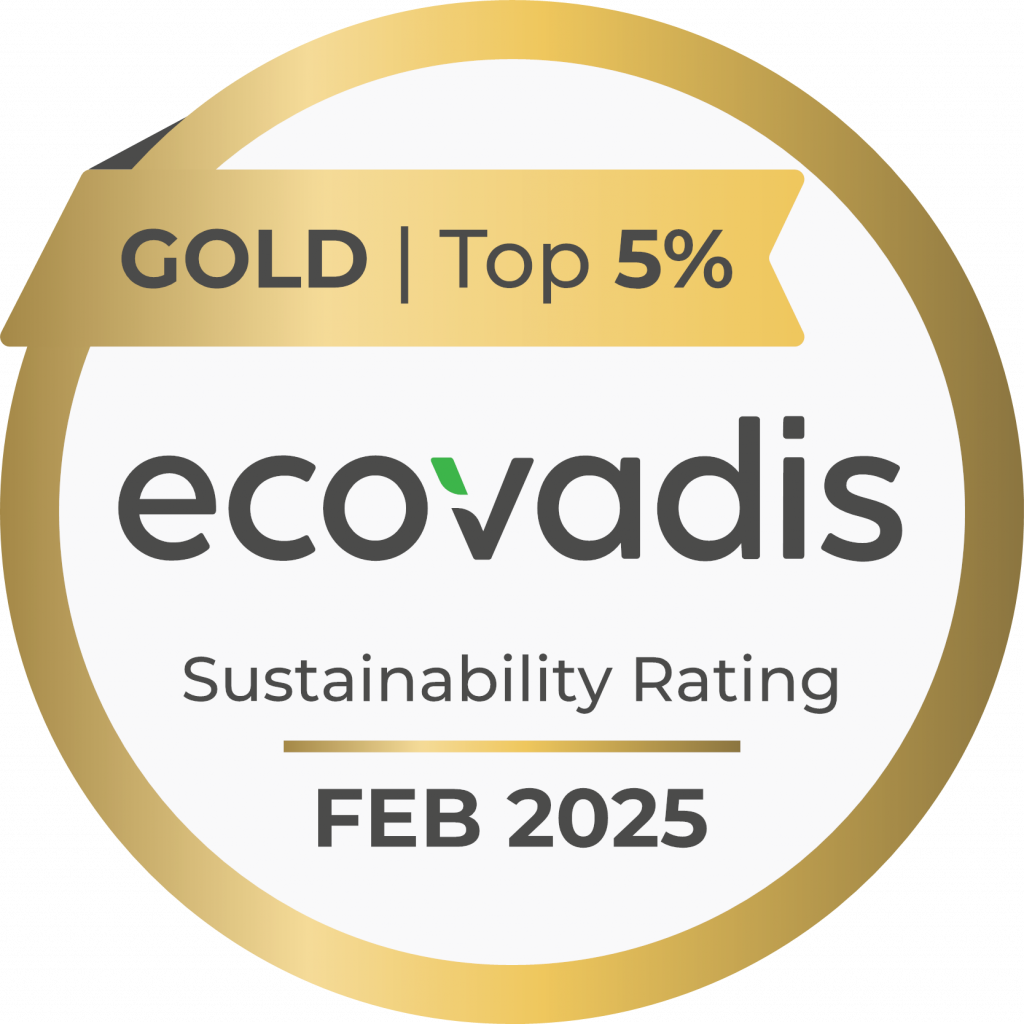Our progress in 2024
Heppner is GOLD ECOVADIS certified:
Certified GOLD ECOVADIS for the first time in 2024, Heppner has improved its rating by 7 points since 2023, with a score of 75/100. Heppner ranks among the top 5% of highest-rated companies assessed by the organisation (all industries taken together).

“This Gold EcoVadis certification is a valued recognition of our efforts and our employees’ commitment to CSR. Over the past year, and in line with previous years, we have increased our score by 7 points, thanks in particular to the RFAR label. This dynamic has enabled us to rank among the top 5% of the world’s highest-rated companies in all industries. Since 2020, we have improved by 21 points, and our intentions are clear: continuously improve our performance and strive for excellence.”
Heppner has completed its double materiality analysis
An essential part of a company’s CSR strategy, the double materiality analysis consists of defining the financial materiality and the impact materiality of CSR-related issues, and identifying their impacts, risks and opportunities (IROs). Working with a specialist consultancy, Heppner surveyed 30 international stakeholders (customers, suppliers, employees, financiers, etc.), conducted 3 in-house ESG (environmental, social and governance) workshops and surveyed all Group employees via a questionnaire. This initiative has enabled the Group to identify material ESG challenges, and define its new CSR policy in 2026, while aligning with CSRD regulations.
Tagetik: Heppner’s new ESG data collection tool
Heppner has equipped itself with an ESG data collection tool that will improve how its ESG data are structured and used. Tagetik will be connected to other data processing software used by the Group, such as Deepki (energy consumption monitoring software) and MichelinConnect (on-board software for vehicles providing fuel consumption and CO2 data). This tool enables Heppner to:
- Guarantee regulatory compliance, particularly with the CSRD and the Green Taxonomy.
- Analyse and report on ESG performance at Group level.
- Consolidate its data to produce the Group’s carbon footprint.
Heppner implements the CSRD
Heppner will be required to comply with the new European regulations on sustainability reporting (wave 2). The primary goal of the Corporate Sustainability Reporting Directive (CSRD) is to harmonise corporate sustainability reporting and improve the availability and quality of published ESG (environmental, social and governance) data. In preparation for this, Heppner has already completed a double materiality analysis, identified its data points and performed its Gap analysis. The Tagetik tool will be used to consolidate all the expected data.
The network of CSR representatives: a two-fold ambition
The 21 CSR representatives relay the CSR team’s actions in each region and country where the Group is present. They also highlight issues specific to each region and encourage the sharing of best practices, as part of a continuous process of collective improvement.
